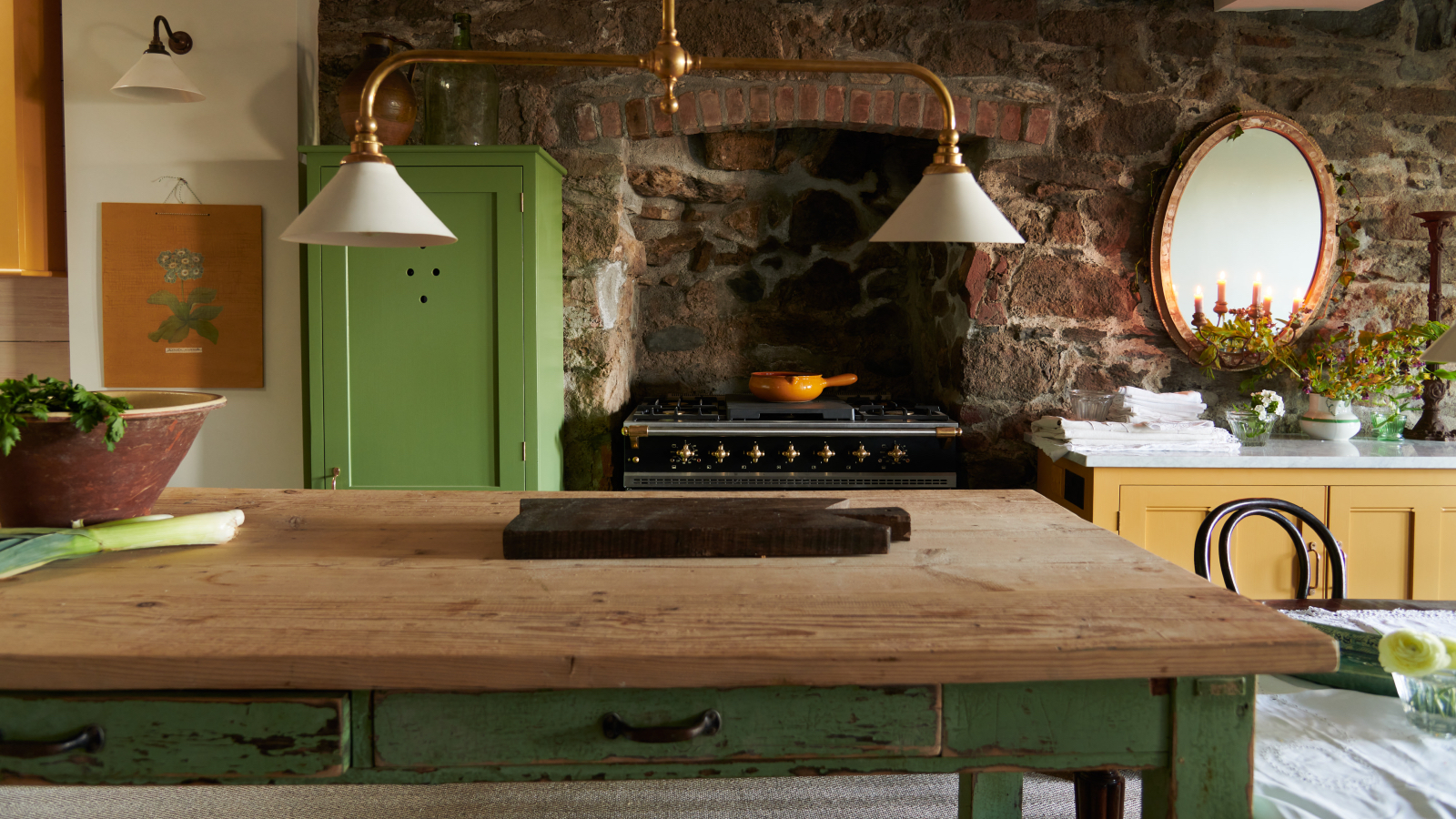You shouldn't pour cooking oil down the drain – here's what to do instead
I answer the internet's most frequently asked questions about getting rid of used cooking oil


It's a simple fact that some foods taste better when they’re fried. But have you ever wondered what happens when you pour leftover cooking oil down your kitchen drain?
I’ve been trying to cut down on fried foods lately, partly because I’m compelling myself to make better choices and partly because my kitchen extractor fan isn’t the best. It can be difficult to clean kitchen grease each day or explain to visitors why my house often smells like yesterday’s dinner.
Using an air fryer has helped, but sometimes, foods are better when cooked with
a generous glug of oil. However, once I’ve finished my perfectly fried food, I’m confronted with the leftover oil and the decision of how best to dispose of it. If you’re ever finding yourself in the same situation, here are some answers to some questions you probably have:

Can I pour cooking oil down my drain?
Generally, it’s best not to pour cooking oil down the drain. If you pour large amounts of oil into your drain or garbage disposal, there’s a chance it can cool and then solidify, which can cause blockages. Fortunately, there are a few other ways to dispose of your used oil easily.
What’s the easiest way to dispose of old cooking oil?
For quick and easy disposal, you can turn the oil into a solid by mixing it with absorbent materials such as paper towels, sawdust, or cat litter. This solid can then be easily disposed of in your household trash.
Is it bad to throw cooking oil in the trash?
Environmentally, there isn’t a great difference between any disposal method for cooking oil. If you’re throwing it in the trash, you’ll want to turn the liquid into a solid, and using a method such as fresh paper towels for this can be wasteful.
Instead, once you’re done with your pan and the old oil, wait for it all to cool and place it in the fridge. The cooling will solidify the oil so you can scrape it straight into the bin, without needing to waste any paper towels.
Can I recycle old cooking oil?
Many states have recycling schemes set up specifically for cooking oil. Most of these are through drop-off points, but some schemes will be able to come to you to collect it. All you’ll need to do is allow it to cool, strain out large food particles, and deliver it in a clean and sealable container.
Many of these schemes can convert used oil into biodiesel, which can then be reused as a renewable energy source. WIn, win!
Is used cooking oil compostable?
Your used oil can be composted, but only in small quantities, as larger volumes can create odors and attract pests. To help speed up the process, it’s best to mix it with other compostable materials such as leaves, grass cuttings, or leftover food scraps.
I’m a big advocate for recycling your used cooking oil where you can in order to reduce waste, but all of these methods will allow you to safely dispose of your used oil in a safe and environmentally friendly way.
Sign up to the Homes & Gardens newsletter
Design expertise in your inbox – from inspiring decorating ideas and beautiful celebrity homes to practical gardening advice and shopping round-ups.

Thomas Litten is a freelance food and drink writer whose articles and product reviews have been featured in a variety of national publications. His introduction to food and drink came through the hospitality sector, running bars for Michelin-starred restaurants. This experience, plus a love of good food, wine, and spirits, led to a career selling premium drinks to high-end restaurants and later providing consultancy services to food and drink start-ups across the UK. Now, based in southwest England, he mainly divides his time between working for a leading bakery business, visiting coffee shops, and collecting and writing about kitchen gadgets.
-
 5 surprising but brilliant ways to clean with old socks – from perfectly buffing stainless steel to deterring pests naturally and more
5 surprising but brilliant ways to clean with old socks – from perfectly buffing stainless steel to deterring pests naturally and moreTackle dust in tricky corners, clean your mirrors and even banish bad odors with those rogue single socks
By Andy van Terheyden Published
-
 How to grow astilbe – expert advice on cultivating this shade-tolerant flowering perennial
How to grow astilbe – expert advice on cultivating this shade-tolerant flowering perennialShade-tolerant and pest-resistant - astilbe are hardy and tough perennials that can thrive in many settings
By Ellen Wells Published
-
 5 surprising but brilliant ways to clean with old socks – from perfectly buffing stainless steel to deterring pests naturally and more
5 surprising but brilliant ways to clean with old socks – from perfectly buffing stainless steel to deterring pests naturally and moreTackle dust in tricky corners, clean your mirrors and even banish bad odors with those rogue single socks
By Andy van Terheyden Published
-
 5 things people with clean upholstery always do – simple, quick and oh-so-effective
5 things people with clean upholstery always do – simple, quick and oh-so-effectiveEnsure your furnishing looks clean year-round with these expert tips
By Seraphina Di Mizzurati Published
-
 'Wick away the ick' – 6 things people with clean laundry rooms always do to make this hardworking space shine
'Wick away the ick' – 6 things people with clean laundry rooms always do to make this hardworking space shineThese tips on how to clean your laundry room will banish grime
By Seraphina Di Mizzurati Published
-
 How safe are carpet deodorizers? As a seasoned vacuum tester, I urge you to try alternative methods
How safe are carpet deodorizers? As a seasoned vacuum tester, I urge you to try alternative methodsNatural cleaning is always the answer
By Dan Fauzi Published
-
 'The world will not end' – 5 cleaning habits to quit for a happier, easier life, and what to do instead
'The world will not end' – 5 cleaning habits to quit for a happier, easier life, and what to do insteadGet your home sparkling, minus the stress
By Ciéra Cree Published
-
 9 things you can clean with glycerin – this cheap and natural cleaner is perfect for indoor and outdoor use
9 things you can clean with glycerin – this cheap and natural cleaner is perfect for indoor and outdoor useFrom patio furniture to silverware, this hydrating and gentle cleaning agent will work miracles
By Ciéra Cree Published
-
 How to clean a terrazzo floor in 5 steps – expert tips to scrub, shine, and seal this sparkling floor finish
How to clean a terrazzo floor in 5 steps – expert tips to scrub, shine, and seal this sparkling floor finishAvoid damage and protect it's shine with these expert tricks
By Chiana Dickson Published
-
 I'm 5ft2 and this telescopic scrubber safely and easily banished mold and grime in even the hardest-to-reach areas of my bathroom in less than 15 minutes
I'm 5ft2 and this telescopic scrubber safely and easily banished mold and grime in even the hardest-to-reach areas of my bathroom in less than 15 minutesMy bathroom has never looked better thanks to this handy $16 two-in-one tool from Joseph Joseph
By Ottilie Blackhall Published